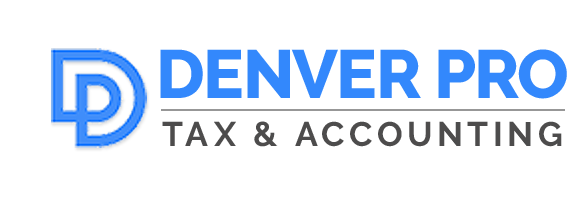Tax Benefits for Homeowners
All the information you need before you file.Buying a home is a huge investment and the IRS gives plenty of opportunities to substantially reduce your tax bill. As a homeowner, you will become a master itemizer, and for good reason. Taking advantage of these tax benefits will lower your taxable income and decrease your tax bill.
Below are 4 of the greatest tax benefits for homeowners. We highly recommend meeting with a CPA or tax professional like Denver Pro Tax to figure out every single deduction and credit you qualify for.
Mortgage Interest Deduction

In most cases, you can deduct all of your home mortgage interest. There is a $1 million yearly limit on the amount of interest you can deduct, but chances are low this applies. You can often deduct late fees as well.
In January, you should receive IRS Form 1098 from your lender specifying the amount of mortgage interest you paid in the previous year. If you purchased the home in that same year, make sure to include any interest you paid on closing costs as well. If this is not listed on the 1098, add the interest on closing closets to the mortgage interest.
Mortgage Points Deduction
Sometimes paying mortgage points makes good financial sense, and these are often deductible. Mortgage points are considered an itemized deduction and are claimed on Schedule A of Form 1040. As mentioned above, you should receive IRS Form 1098 in January which will list how much you paid in mortgage points. Sometimes calculating and deducting mortgage points is anything but straightforward, so don’t hesitate to contact a tax professional like Denver Pro Tax for assistance.
Property (Real Estate) Tax Deduction
The money you pay in property taxes is also deductible. You will find this on your 1098 form or should have it in your records if you pay directly to your local municipality. Beginning in 2018, the total amount of state and local taxes, including property taxes, is limited to $10,000 per tax year.
If you are filing your taxes for the same year you purchased your home, you should include your property tax reimbursement payments. Property taxes are usually paid twice per year, so the seller likely paid the property taxes for a 6-month period in which both the buyer and seller owned the home. At closing, the buyer reimburses the seller for the portion of that 6-month period that they will own the home. This can be found on the settlement sheet.
Home Office Deductions
If you own a business and have a home office, there are a few expenses you can deduct. You may be able to deduct a portion of your utility and maintenance fees, and your deductions will be greater if almost all of your work takes place there. This includes client meetings, bookkeeping, fulfilling orders, etc. This deduction also exists for renters, not just homeowners. Click here to read the IRS requirements.
Residential Energy Credit
Unfortunately all of the above are deductions, not credits. As a homeowner, you also qualify for tax credits like the residential energy credit. If you make improvements to the energy efficiency of your house, you qualify for a tax break in the form of an energy tax credit.
From energy-efficient skylights to solar-powered generators, you can receive this tax credit for a wide variety of residential energy improvements. Check the Database of State Incentives for Renewable Energy to see all the tax credits, rebates, and other incentives your state has to offer for energy-efficient improvements to your home.
There are many more tax benefits for homeowners, and because everyone’s situation is different, we highly recommend working with a professional. Even working with a tax specialist once will give you all the information you need to take every deductible you can.
If you are in the south Denver Metro Area, the experts at Denver Pro Tax are happy to help. Contact us today!

